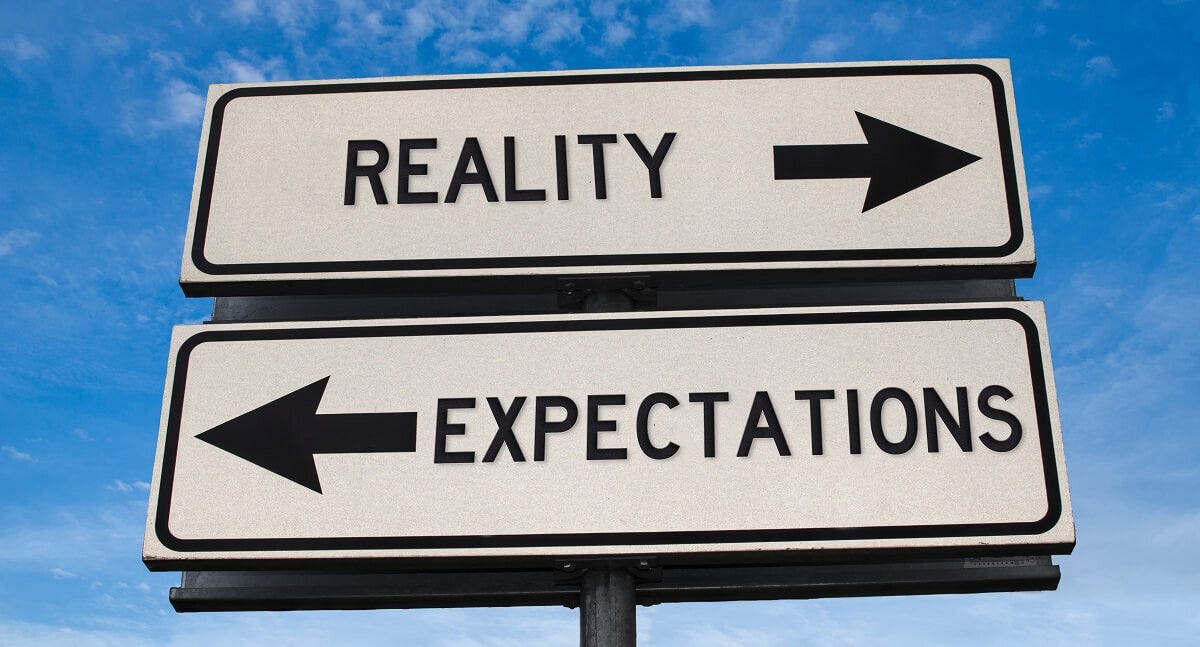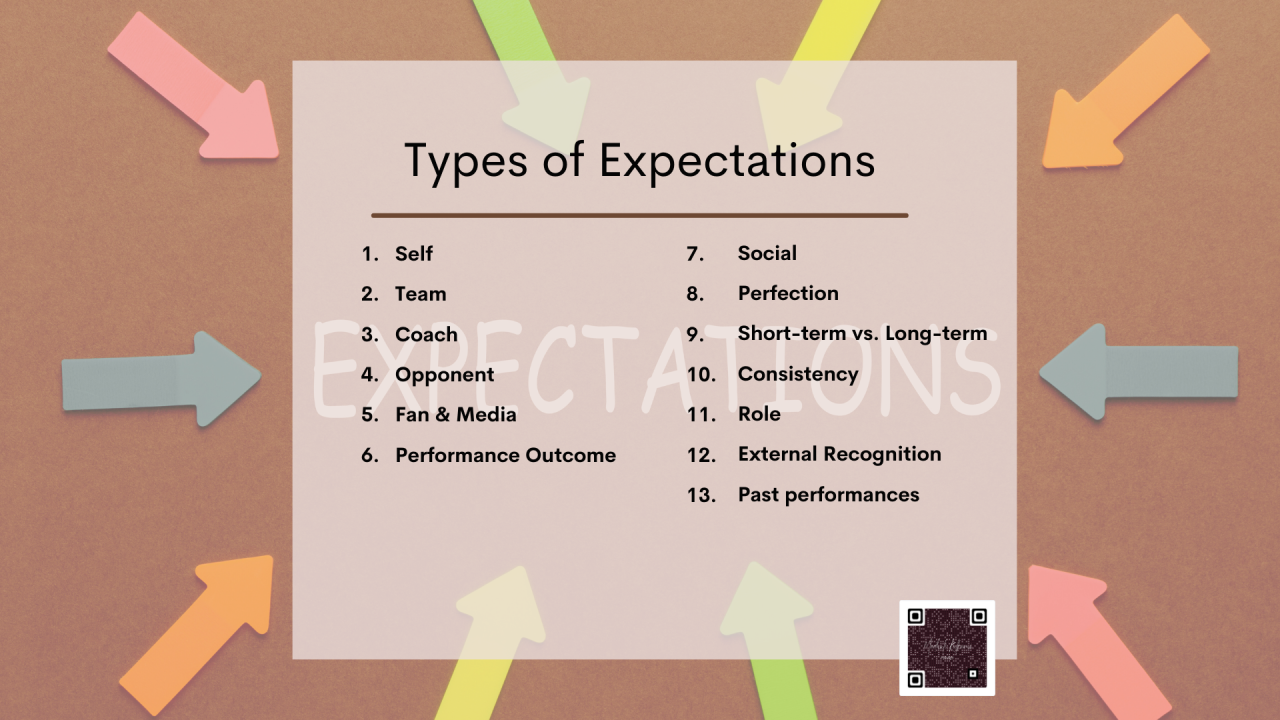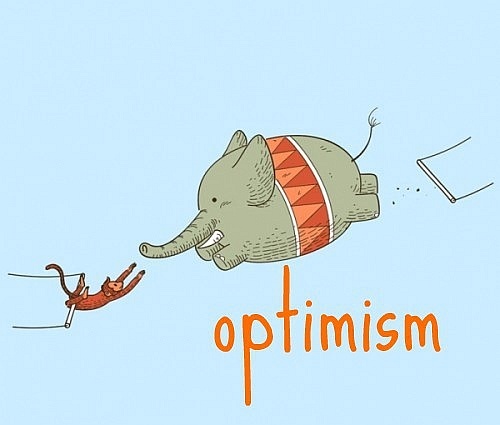Key Takeaways
- Expectations shape our daily interactions and can significantly impact our happiness and stress levels.
- Social expectations are influenced by cultural norms and dictate how we behave in different environments.
- Performance expectations set standards for our work and personal achievements, often affecting our self-esteem.
- Understanding and managing relationship expectations can lead to healthier interpersonal connections.
- Recognizing unspoken expectations can prevent misunderstandings and improve communication.
Understanding Everyday Expectations
Expectations are like invisible scripts that guide our actions and reactions every day. They’re the silent architects of our experiences, influencing how we perceive events and how we interact with others. Most importantly, expectations can affect our emotional well-being, often dictating whether we feel satisfied or disappointed with a situation.
Think about it: when you expect a sunny day and it rains, your mood might take a hit. Conversely, if you expect a challenging day at work and everything goes smoothly, you might feel elated. This is the power of expectations—they shape our reality in profound ways.
It’s crucial to understand that expectations come in various forms and originate from different sources. Let’s delve deeper into what expectations are and how they form.

“The Power of Expectations (and How to …” from salcla.medium.com and used with no modifications.
Definition of Expectations
Expectations are beliefs about what will happen in the future. They can be personal, like believing you’ll ace a test, or social, like assuming people will greet you politely. Expectations often stem from past experiences, cultural norms, or explicit agreements. For instance, if you’ve always been praised for your punctuality, you might expect yourself to always be on time.
Origin and Formation of Expectations
Expectations are not formed in a vacuum. They arise from a complex interplay of personal experiences, societal influences, and psychological processes. When you were a child, your family likely had certain expectations for your behavior. These expectations might have been influenced by cultural values, such as respect for elders or the importance of education.
Moreover, expectations can evolve. As we grow and learn, we adjust our expectations based on new information and experiences. For example, someone who initially expects to excel in every task may adjust their expectations after encountering challenges. This adaptability is crucial because rigid expectations can lead to repeated disappointment.
“Expectations are mostly unstated. Some assumptions we could easily describe: ‘He should be tall, dark, and handsome…she should not talk too much…’ but most of what we expect goes unstated…even unconscious.”
Recognizing Unspoken Expectations
Unspoken expectations are the silent assumptions we make about how things should be. They’re often the source of misunderstandings and conflicts because they remain uncommunicated. For instance, you might expect a friend to remember your birthday without explicitly telling them, leading to disappointment if they forget.
Recognizing these unspoken expectations is key to preventing misunderstandings. It involves introspection and open communication. Ask yourself, “What am I assuming about this situation?” and “Have I communicated my expectations clearly?” By bringing these assumptions to light, you can foster more transparent and harmonious relationships.

“Types of Expectations” from www.linkedin.com and used with no modifications.
Different Types of Expectations
Expectations can be categorized into various types, each influencing different aspects of our lives. Let’s explore some of these categories and their impacts.
Social Expectations
Social expectations are the unwritten rules that govern our behavior in society. They vary across cultures and situations. For example, in some cultures, it’s expected to remove your shoes before entering a home, while in others, this might not be the case. These expectations help maintain social order but can also create pressure to conform.
Performance Expectations
Performance expectations are standards we set for ourselves or others regarding tasks and achievements. They can be self-imposed or come from external sources, such as employers or educators. Meeting or exceeding these expectations can boost self-esteem, while failing to meet them can lead to self-doubt.
Relationship Expectations
- Emotional Support: Expecting friends or partners to provide comfort and understanding.
- Communication: Anticipating regular and open communication in a relationship.
- Trust: Assuming honesty and reliability from loved ones.
- Shared Responsibilities: Expecting equal participation in household chores or financial responsibilities.
Understanding and managing these expectations is crucial for maintaining healthy relationships. Clear communication and flexibility can help align expectations with reality, reducing conflicts and enhancing connections.
In the next part, we’ll explore how expectations influence behavior and how to manage them effectively.
Daily Practical Expectations
Daily practical expectations are the small, everyday assumptions we make about how our day will unfold. They can include expecting the bus to be on time, assuming your favorite coffee shop will have your preferred pastry, or believing that your commute will be smooth. These expectations help us plan and navigate our daily routines with a sense of predictability and control.
However, when these expectations are not met, they can lead to frustration or stress. For example, if you expect to find a parking spot easily and end up circling the lot for 20 minutes, your mood might sour. Therefore, it’s essential to remain flexible and open to adjustments in your daily expectations to maintain a positive outlook.
Impact of Expectations on Behavior
Expectations significantly influence our behavior, often dictating how we respond to different situations. When expectations align with reality, they can motivate us to achieve goals and improve our performance. On the other hand, when expectations are unmet, they can lead to disappointment, stress, or even anxiety.
For instance, if you expect to receive praise for a project at work and receive constructive criticism instead, your initial reaction might be defensiveness or discouragement. However, by managing your expectations and viewing feedback as an opportunity for growth, you can turn the situation into a positive learning experience. To further enhance your adaptability, consider exploring tips to cultivate an adaptable mindset.
Positive vs. Negative Expectation Outcomes
The outcomes of expectations can be broadly categorized as positive or negative. Positive outcomes occur when expectations are met or exceeded, leading to satisfaction and motivation. Negative outcomes arise when expectations are unmet, resulting in disappointment or frustration.
- Positive Outcomes: Increased motivation, enhanced self-esteem, and a sense of accomplishment.
- Negative Outcomes: Disappointment, decreased motivation, and potential stress or anxiety.
Understanding these potential outcomes can help you manage your expectations more effectively. By setting realistic and achievable expectations, you can increase the likelihood of positive outcomes and reduce the impact of negative ones. For more insights on setting realistic expectations, explore these optimism techniques.

“The Importance of Optimism — Tom Morris” from www.tomvmorris.com and used with no modifications.
Besides that, it’s essential to recognize that not all unmet expectations are detrimental. Sometimes, they can provide valuable insights and opportunities for growth. For example, failing to meet a fitness goal might encourage you to reevaluate your approach and set more realistic targets.
Expectations in Interpersonal Relationships
In interpersonal relationships, expectations play a crucial role in shaping dynamics and interactions. They encompass assumptions about communication, emotional support, and shared responsibilities. When expectations are clear and aligned, relationships tend to thrive. However, when they’re misaligned or unspoken, conflicts can arise.
For example, if one partner expects daily check-ins while the other assumes weekly updates are sufficient, misunderstandings may occur. To avoid such conflicts, it’s important to communicate expectations openly and be willing to compromise. This approach fosters mutual understanding and strengthens the relationship.
How to Manage and Adjust Expectations
Managing and adjusting expectations is key to maintaining emotional balance and fostering positive relationships. By setting realistic expectations and communicating them effectively, you can minimize disappointment and enhance your overall well-being.
Here are some strategies to help you manage and adjust your expectations:
Setting Realistic Expectations
- Assess your current situation and capabilities honestly.
- Set achievable goals based on past experiences and available resources.
- Be flexible and open to adjusting your expectations as circumstances change.
By setting realistic expectations, you create a more balanced outlook on life. This approach allows you to celebrate small victories and learn from setbacks without feeling overwhelmed.
Remember, it’s okay to aim high, but ensure your expectations are grounded in reality to prevent unnecessary stress and disappointment.
Communication Tools for Expressing Expectations
- Use “I” statements to express your needs and desires clearly.
- Encourage open dialogue to understand others’ expectations.
- Practice active listening to ensure mutual understanding.
Effective communication is the cornerstone of managing expectations. By expressing your expectations clearly and encouraging others to do the same, you can build stronger, more understanding relationships.
Most importantly, be open to feedback and willing to adjust your expectations based on the input you receive. This flexibility can lead to more harmonious interactions and a deeper connection with others.

“Accepting Reality as the Key to …” from www.thinkingdirections.com and used with no modifications.
Balancing Expectations and Reality
Balancing expectations with reality requires a mindful approach. It’s about acknowledging the gap between what you desire and what’s achievable, and finding contentment in the present moment.
To achieve this balance, practice gratitude and focus on the positives in your life. Recognize that while expectations can guide you, they shouldn’t overshadow your appreciation for what you have. For more insights on maintaining a positive outlook, explore these optimism techniques.
Applying Knowledge of Expectations in Daily Life
Applying your understanding of expectations in daily life can lead to a more fulfilling and stress-free existence. By managing your expectations, you can navigate challenges with resilience and embrace opportunities for growth.
In the next part, we’ll explore how expectations influence personal growth and mindset, and discuss common pitfalls and how to avoid them, including strategies to break bad habits.
Expectation Management at School and Work
Managing expectations at school and work involves setting clear and achievable goals. In educational settings, students often face pressure from both internal expectations and those set by teachers or parents. It’s crucial to balance ambition with reality. For instance, while aiming for top grades is admirable, it’s equally important to recognize one’s strengths and limitations to avoid burnout.
In the workplace, expectations can significantly impact job satisfaction and performance. Clear communication with supervisors about job responsibilities and career goals can help align expectations. Moreover, being adaptable to changing circumstances and feedback is essential for professional growth. For more insights, explore how expectations influence individual growth.
Influence on Personal Growth and Mindset
Expectations play a pivotal role in shaping personal growth and mindset. When expectations are realistic and aligned with personal values, they can motivate individuals to pursue self-improvement and achieve their goals. A growth mindset, which embraces challenges and learns from setbacks, thrives on well-managed expectations.
Conversely, unrealistic expectations can hinder personal development. They may lead to feelings of inadequacy or frustration when goals aren’t met. Therefore, cultivating a mindset that values progress over perfection can foster resilience and encourage continuous learning.
Frequent Pitfalls and How to Avoid Them
One common pitfall is holding onto rigid expectations. When individuals are inflexible in their expectations, they may struggle to adapt to unforeseen changes or setbacks. This rigidity can lead to stress and disappointment.
Another pitfall is failing to communicate expectations clearly. Misunderstandings often arise when people assume others share their expectations without explicitly discussing them. Open communication can prevent these issues and promote mutual understanding.
Additionally, societal and cultural pressures can influence expectations, sometimes leading to unrealistic standards. It’s important to critically evaluate these influences and prioritize personal values over external pressures.
- Be flexible and willing to adjust expectations as needed.
- Communicate openly with others to ensure alignment of expectations.
- Focus on personal growth and learning rather than perfection.

“Manage Stress in Your Daily Life: 10 …” from greenepsychologygroup.com and used with no modifications.
Frequently Asked Questions
Expectations are a fundamental aspect of human psychology, influencing our interactions and emotional well-being. Here are some frequently asked questions about expectations and their impact on daily life.
How do expectations affect mental health?
Expectations can significantly impact mental health. When expectations are met, they can boost confidence and satisfaction. However, unmet expectations can lead to stress, anxiety, or depression. It’s important to manage expectations realistically to maintain mental well-being.
“Though expectations can serve us well when they align with reality, they can also be the source of some serious heartache when they don’t. That is, when our expectations are not met, we often feel disappointed and sometimes even heartbroken.”
Therefore, cultivating a balanced approach to expectations can help protect mental health. Practicing mindfulness and focusing on the present can also reduce the impact of unmet expectations.
Can changing expectations improve relationships?
Yes, changing expectations can improve relationships. By aligning expectations with reality and communicating them openly, individuals can reduce misunderstandings and conflicts. Flexibility and compromise are key to maintaining healthy relationships.
Why do expectations often lead to disappointment?
Expectations lead to disappointment when they are unrealistic or uncommunicated. People may assume others share their expectations without discussing them, leading to unmet assumptions. To avoid disappointment, it’s important to set achievable expectations and communicate them clearly.
Moreover, being adaptable and open to alternative outcomes can help mitigate disappointment. Viewing unmet expectations as opportunities for growth rather than failures can also foster a more positive outlook.
How can one identify unrealistic expectations?
Identifying unrealistic expectations involves introspection and self-awareness. Reflect on whether your expectations are based on personal values or external pressures. Consider if they are achievable given your current resources and circumstances.
Seeking feedback from trusted friends or mentors can also provide valuable insights. They may offer a different perspective on whether your expectations are realistic and suggest adjustments if needed.
What role do cultural differences play in forming expectations?
Cultural differences significantly influence expectations. Different cultures have varying norms and values that shape expectations about behavior, relationships, and achievements. For example, individualistic cultures may emphasize personal success, while collectivist cultures prioritize community and family.
Understanding these cultural influences can help individuals navigate diverse social environments. It encourages empathy and flexibility, allowing people to adapt their expectations to different cultural contexts. To further explore this topic, you can read about recognizing and handling condescending behavior effectively.
In conclusion, expectations are a powerful force in our daily lives. By understanding and managing them effectively, we can enhance our personal growth, relationships, and overall well-being.
Expectations play a crucial role in shaping our daily experiences and interactions. They can influence our emotions, behaviors, and even the outcomes of our efforts. Understanding the different types of expectations can help us navigate through life more effectively. For instance, expectations can often be the real happiness killer, affecting how we perceive success and failure. By managing our expectations, we can improve our well-being and relationships.










Leave a Reply